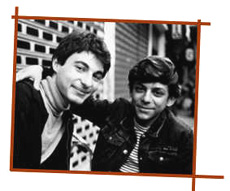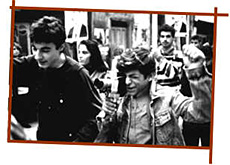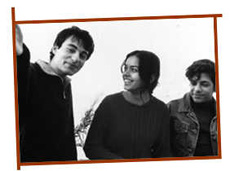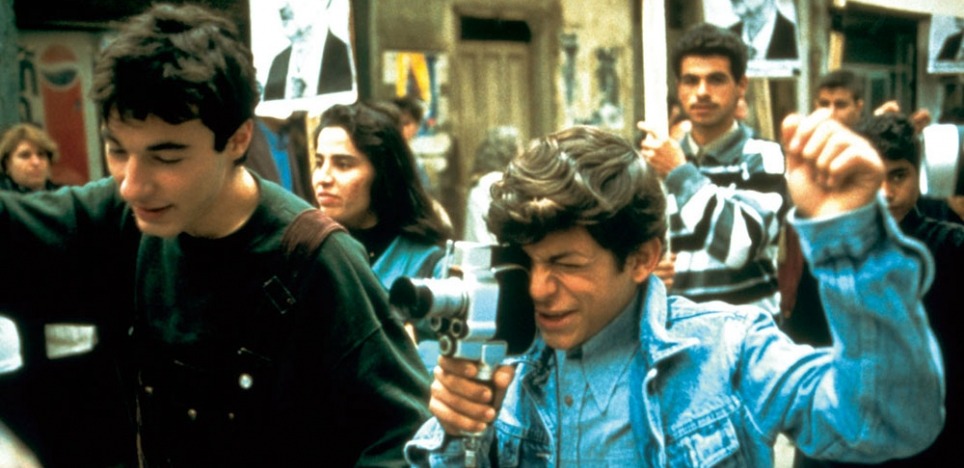
There was a time when we saw disturbing /uploads/features/images on television of bombed-out cities and our hearts went out to their frightened citizens but we could not truly identify with them having never experienced such things ourselves. But now terrorists have pulled down the wall separating Americans from people in Jerusalem, the West Bank and Gaza Strip, Belfast, Sarajevo, and Beirut. We now know what it is like to have our cities bombed.
Ziad Doueiri, the writer and director of West Beirut (1999), grew up in this war-torn city in the 1970s. He has made a deeply human film revolving around Tarek, a lively teenager trying to keep his soul alive in a very tense and dangerous environment. The city is split in two: East Beirut is Christian controlled and West Beirut is Muslim. Tarek, his best friend Omar, and Mary, a new companion who is Christian, share adventures when their school is closed after a bus is attacked nearby.
Joanna Macy, a practitioner of engaged Buddhism, has written: "The heart that breaks open can contain the whole universe." Let this unsettling film break open your heart. The questions and exercises in this guide are designed to facilitate that process. They focus on terrorism, anger, anxiety, compassion, your inner clown, the war inside you, and being faithful to life.
West Beirut runs 108 minutes and is not rated. For our review of the film and a plot synopsis, click here.
1. TERRORISM
Robert Sardello writes in Freeing the Soul from Fear: "With terrorism, fear becomes amplified a thousandfold. Fear becomes a commodity bought and sold, exported and imported, transported anywhere; it becomes a tangible thing, respecting no boundaries. It may be just around the corner for any of us, ready to leap out without any warning whatsoever.
"The measures taken to defend against this form of fear also contribute to the dehumanizing process. We are subjected to guards at the airport, the courthouse, schools, and sports events . . . they make us all more mean-spirited, paranoid, and mistrustful."
- After terror strikes a city, people are gripped by fear, panic, and distrust. How are these elements played out in the opening scenes of the film?
- Share your feelings about terrorism and its effect upon your life. Do you agree with Sardello’s view that the measures taken to defend against terrorism are also dehumanizing? Have they made you feel more paranoid or more secure?
2. ANGER
"At the moment you become angry, you tend to believe that your misery has been created by another person," Thich Nhat Hanh writes in Anger: Wisdom for Cooling the Flames. "You blame him or her for all your suffering. But by looking deeply, you may realize that the seed of anger in you is the main cause of your suffering."
- In an environment filled with the tension brought on by violence, anger always comes to the fore. Share your reactions to Tarek’s anger at the taxi driver, the temper tantrums of the woman in the complex where Tarek lives, and the dispute between the baker and the militiaman.
- Talk about a situation that had the effect of watering the seeds of violence and anger inside you. What spiritual practices help you deal with your anger?

3. THE CLOWN IN YOU
James Hillman, the founder of archetypal psychology, has observed: "The comic spirit masquerades in all things we say and do. We are each a clown and do not need to put on a white face."
- Tarek, like many teenagers, uses humor to handle his conflicting feelings about the future. Share your responses to the effectiveness of his comic spirit in the following scenes: when he refuses to sing the French anthem at his school assembly; when he hatches a scheme to end the war using the brothel; when he jokes around in his friend Omar’s bedroom.
- When does your inner clown surface? In what ways is the comic spirit a healing antidote to fear?
4. THE "WHAT IF?" OF ANXIETY
"What’s certain is that we now think about fears — the concrete disasters of the past in the future tense. And they probably encompass more possible disasters than ever. Fear includes the ‘what if?’ of anxiety. The possibility of future suffering, the dread of what might happen at some dire unspecific time. Fear now encompasses myriad suspense attacks — physical, social, emotional — to our survival," Jane Hammerslough writes in Dematerializing.
- What is the impact of the war on Tarek’s parents? Discuss their differing approaches to survival. With which one do you most identify? Why? What does the final scene between them convey to you?
- What spiritual strategy best speaks to the danger of allowing the "what if?" of anxiety to take over your consciousness?
5. COMPASSION PRACTICE
In The Places That Scare You Pema Chodron states: "Compassion practice is daring. It involves learning to relax and allow ourselves to move gently toward what scares us. The trick for doing this is to stay with emotional distress without tightening into aversion, to let fear soften us rather than harden into resistance. . . . In cultivating compassion we draw from the wholeness of our experience — our suffering, our empathy, as well as our cruelty and terror."
- The closest Tarek comes to staying with his emotional distress and letting his fear soften him is when he talks about his feelings with Omar on the roof. In what ways is this an example of daring compassion practice?
- Share the things you have done to move gently toward what scares you. What helps you keep your heart open when you are fearful?
6. STOPPING THE WAR INSIDE YOURSELF
"Stop the war within yourself and you will do the world and humanity the greatest service," Ajahn Sumano Bhikku writes in Questions from the City, Answers from the Forest.
- What is the main war going on inside Tarek? inside Omar?
- What war rages inside you? What spiritual progress have you made in bringing peace?

7. BEING TRUTHFUL TO LIFE
"It is harder to learn from life than you think," John Shea is quoted as saying in Graziano Marcheschi’s Wheat & Weeds & The Wolf of Gubbio. "Life is a series of fragmented activities. We need to pay attention in order to learn from life. There is more going on than you know. Divine reality has been active in you. Being faithful is learning to respond to what is given — the gift of life — while it is being given."
- What do Tarek, Omar, and May learn from their rites of passage? What character would you say is most faithful to life?
- What has this film taught you about paying attention and learning from life? Compassion means "to suffer with." In what ways has watching this movie enabled you to widen the circle of your compassion?
This guide is one in a series of more than 200 Values & Visions Guides written by Frederic and Mary Ann Brussat. Text copyright 2001 by Frederic and Mary Ann Brussat. Photos courtesy of Cowboy Pictures. This guide is posted as a service to visitors to www.SpiritualityandPractice.com. It may not be photocopied, reprinted, or distributed electronically without permission from Frederic and Mary Ann Brussat. For a list of guides in the Values & Visions series and ordering information, email your name and mailing address to: brussat@spiritualrx.com.
